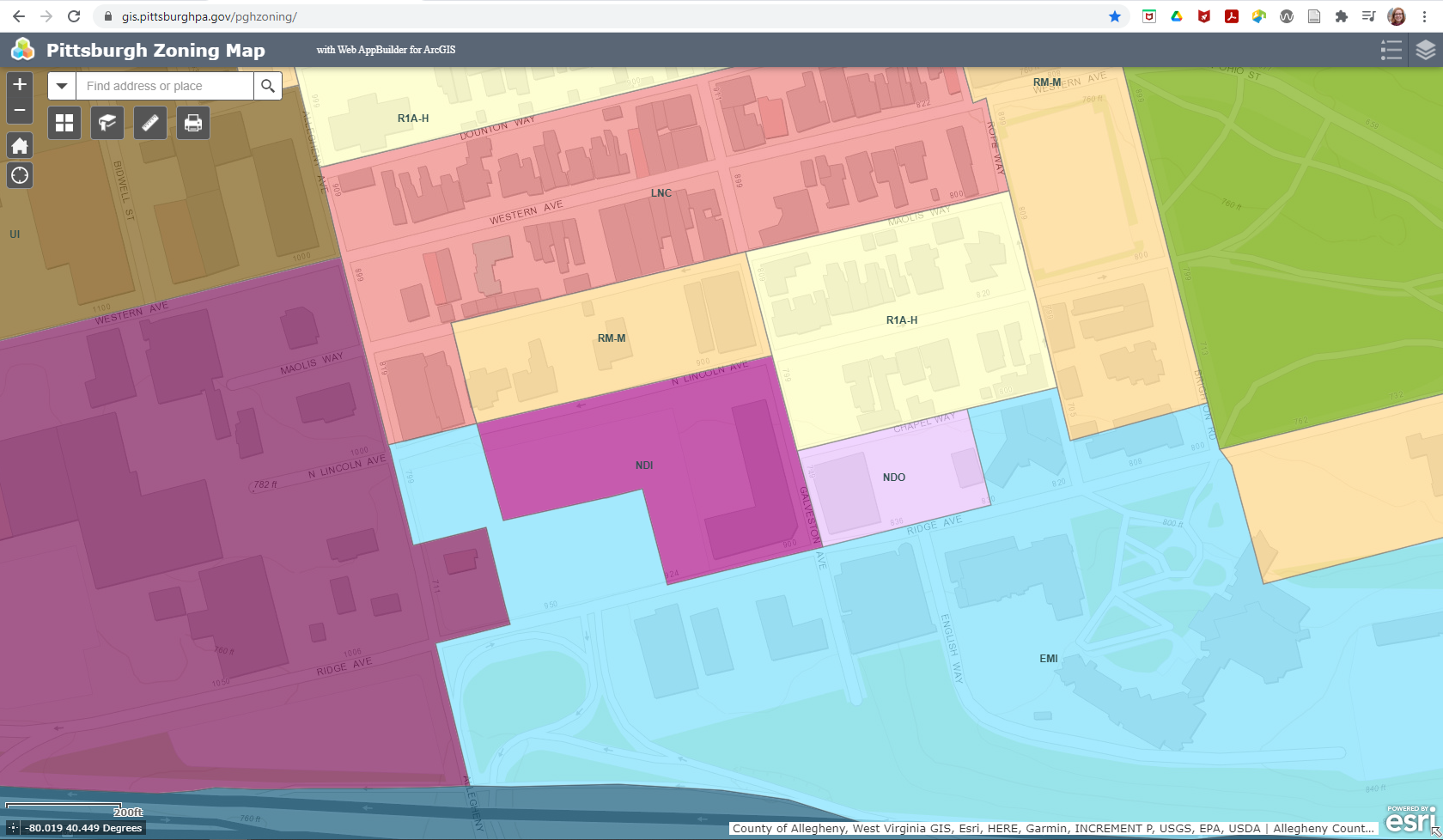Pittsburgh Zoning Districts - NDI Overview
By Carolyn Ristau
Introduction
Zoning districts are a fundamental building block of zoning regulations and set the base use, height, and density standards. In some cases, the district also sets the required level of zoning review. The NDI (Neighborhood Industrial) zoning district covers 0.37 square miles or 0.76% of Pittsburgh. In this post, we provide an overview of the challenges when working on a site in the NDI zone. Additional posts will dive into the uses and density regulations for the NDI.
Refer to our Introduction to Pittsburgh’s Zoning Districts for the complete list of base zoning districts in the city. Pittsburgh’s interactive zoning map can be used to verify the project site’s zoning district.
Overview
The NDI zoning district enables a mix of small-scale industrial uses, such as laboratories and manufacturing, with housing including single-family dwellings. Interestingly, helicopter pads and stops are permitted in this district, though hospitals (the primary places in Pittsburgh where helicopters are used) are not permitted.
Challenges
Projects in mixed-use zoning districts tend to have more standards to follow and are often required to go through Site Plan Review. Site Plan Review is a longer, more thorough review than Basic Zoning Review (formerly known as over-the-counter), and often requires additional documentation. Due to the staff time involved, there is an additional cost for the review. In the NDI, Site Plan Review is required for:
any new construction, addition, or exterior renovation on a property with a lot size of at least 2,400 sq ft (a common size)
any parking lot with more than 10 spaces or over 2,500 sq ft
any scope of work on most parcels adjacent to or within 100 feet of an R1D/A, R2, R3, RM, or H zoning district
One of the additional standards checked during Site Plan Review is Residential Compatibility. Residential Compatibility applies when a parcel is adjacent to or within 100 feet of an R1D/A, R2, R3, RM, or H zoning district. The Residential Compatibility Standards (Chapter 916) may add setbacks, height limits, and screening requirements above and beyond the base requirements. They may also impose limits on operating hours, lighting, noise, and odor. The zoning code acknowledges that this often creates a hardship. As a result, the code has standards to waive some or all of the Residential Compatibility Standards through a Special Exception at the Zoning Board of Adjustment.
The 2:1 floor area ratio maximum in the NDI limits the permissible density to the point that either the 90% lot coverage or the 3-story height limit can be maxed, but not both.
Conclusion
The zoning district sets the base use, height, and density standards for any project and may also designate the level of review required. The NDI combines small-scale industry with housing. Projects needing zoning review in the Neighborhood Industrial zoning district will likely require the longer and more expensive Site Plan Review process and may be subject to Residential Compatibility Standards.

